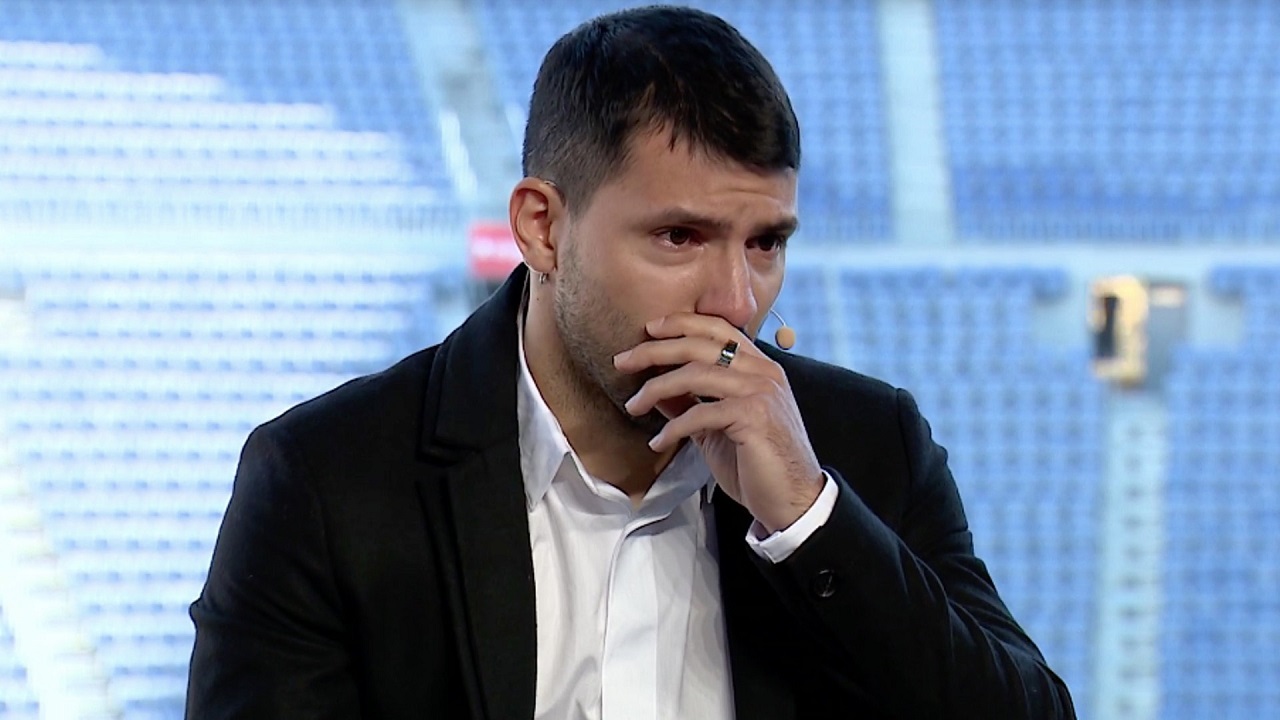
Barcelona Striker Sergio Aguero Announces Retirement
Fighting back tears, Sergio Aguero took a deep breath and finally made the announcement soccer fans had dreaded ever since he left a game with chest pains six weeks ago.
In front of an intimate audience of friends, family and teammates from a prolific 18-year career that has come to a sad and sudden end, the 33-year-old Barcelona striker said he has decided to stop playing professional football.
“When they did the first test in the clinic, the medical staff called to tell me there was a very big possibility that I wouldn’t be able to keep playing, I was still processing everything when one of the doctors told me straight up that that’s enough.
“The decision I made, I have taken it for my health,” Aguero said.
Aguero, one of the world’s greatest strikers of this generation, underwent tests after leaving the field, holding his chest, during Barcelona’s match against Alaves in the Spanish league on October 30.
One of the world’s most recognizable players, with his powerful shot and explosive movement, Aguero will best be remembered as a player for his 10-year stint at Man City during which he became a great of the English game.
Aguero scored a club-record 260 goals for City and was a key player in the growth of the team as a major force in England and Europe.
He had a record 12 hat tricks in his total haul of 184 Premier League goals, the most for an overseas player and the fourth most all-time.
He scored what is surely the Premier League’s most famous goal, the dramatic stoppage-time winner against Queens Park Rangers that clinched the title for City on the final day of the 2011-12 season.
Aguero, who joined City from Atletico Madrid in 2011, struggled with injuries in his final two seasons at City and was allowed to leave.
He signed for Barcelona, where he thought he’d be linking up with close friend and Argentina teammate Lionel Messi only for the seven-time world player of the year to join Paris Saint-Germain because of the club’s financial problems.
Aguero missed the start of his first season at Barcelona because of fitness issues and was making only his second start for the team when he felt discomfort in his chest against Alaves and came off just before halftime.
For Argentina, Aguero scored 41 times in 97 matches – putting him third on the national team’s all-time scoring list – after making his senior team debut in 2006, that came between two world titles for Argentina’s youth teams.
Aguero’s only major title with Argentina came at this year’s edition of the Copa America, in which he barely featured, and he also won the Olympic gold medal in Beijing in 2008, he played in three World Cups, and was a second-half substitute in the 2014 final that Argentina lost 1-0 to Germany after extra time.
He was one of the youngest players to make his debut in Argentina’s top division, at the age of 15 for Independiente, he had spoken about potentially finishing his career at the Buenos Aires club.
Aguero scored 427 goals in 786 games in his career.
